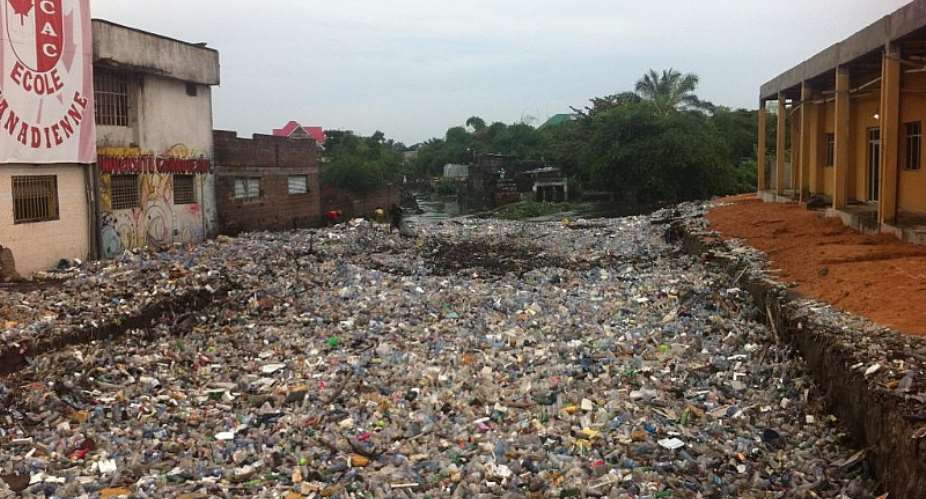With 7,000 tons of waste produced daily including 1,500 tons of plastics, Kinshasa, the capital of the Democratic Republic of Congo, is a major source of pollution for the Great Lakes region. The management of plastic waste by the municipal authorities is almost non-existent, but new initiatives are in line to put this waste to good use as well as clean up the city.
"More than twelve million people use at least one [plastic] bottle a day, so you can imagine the environmental chaos that this represents,” Jimmy Hamuli, the head of National Center for Development Support and Participation [CENADEP], a non-governmental organization, told RFI's Olivier Rogez.
“If there are no initiatives, it's very difficult to manage this problem," adds Hamuli, who wants to clean up the Congolese capital, where 1,500 tons of plastic are used on a daily basis.
One idea includes creating plastic bottles into paving stones and construction materials not a new idea, but one that would greatly help the DRC.
We are looking to create "ecological paving stones made from recycled plastic waste that we collect in the streets of Kinshasa, the gutters,” says Steve Matenda, a Congolese engineer, who wants to turn plastic bottles into much-needed materials, as a way of upcycling.
Industrial boost required
Many Kinshasa residents already reuse plastics for personal use, creating chairs or utensils, for instance. But Matenda wants to create an operation on an industrial scale.
"Being a trained engineer myself, with a few friends, I set up a machine, if you can call it that,” said Matenda.
“We're trying to prototype the industrial model, but this machine helps us recycle this waste. Currently, the monthly capacity is quite low, because we only have a single unit of 390m2. It will have a capacity of 15,000 m2,” he says.
Part of the challenge is building up their stock to reach an industrial scale.
We really want to “establish the supply network otherwise we will not be able to work, but also have the support of the authorities to facilitate certain administrative constraints,” he says.
Creating a viable recycling industry will take time, and ultimately some effort from local authorities in order to facilitate this emerging sector.





 Akufo-Addo commissions Phase II of Kaleo solar power plant
Akufo-Addo commissions Phase II of Kaleo solar power plant
 NDC panics over Bawumia’s visit to Pope Francis
NDC panics over Bawumia’s visit to Pope Francis
 EC blasts Mahama over “false” claims on recruitment of Returning Officers
EC blasts Mahama over “false” claims on recruitment of Returning Officers
 Lands Minister gives ultimatum to Future Global Resources to revamp Prestea/Bogo...
Lands Minister gives ultimatum to Future Global Resources to revamp Prestea/Bogo...
 Wa Naa appeals to Akufo-Addo to audit state lands in Wa
Wa Naa appeals to Akufo-Addo to audit state lands in Wa
 Prof Opoku-Agyemang misunderstood Bawumia’s ‘driver mate’ analogy – Miracles Abo...
Prof Opoku-Agyemang misunderstood Bawumia’s ‘driver mate’ analogy – Miracles Abo...
 EU confident Ghana will not sign Anti-LGBTQI Bill
EU confident Ghana will not sign Anti-LGBTQI Bill
 Suspend implementation of Planting for Food and Jobs for 2024 - Stakeholders
Suspend implementation of Planting for Food and Jobs for 2024 - Stakeholders
 Tema West Municipal Assembly gets Ghana's First Female Aircraft Marshaller as ne...
Tema West Municipal Assembly gets Ghana's First Female Aircraft Marshaller as ne...
 Dumsor is affecting us double, release timetable – Disability Federation to ECG
Dumsor is affecting us double, release timetable – Disability Federation to ECG
